Partisan activity in New Year period increased in Russia.
Partisans in Russia have, according to Ukraine’s military intelligence, already stepped up their activities in the first month of 2023. Partisans halted the movement of civilian and military trains on a section of the Trans-Siberian Railway near Krasnoyarsk in Russia on Jan. 4.
JOIN US ON TELEGRAM
Follow our coverage of the war on the @Kyivpost_official.
There have already been at least six cases of railway sabotage in various regions of Russian territory since the year began.
Oleksiy Baranovsky, a deputy of the political center of the armed Russian opposition, said that increased partisan activity during the New Year holiday period is connected to weaker police control of state facilities in Russia. "Police officers might be drunk and lose control - this is a good opportunity," he said.
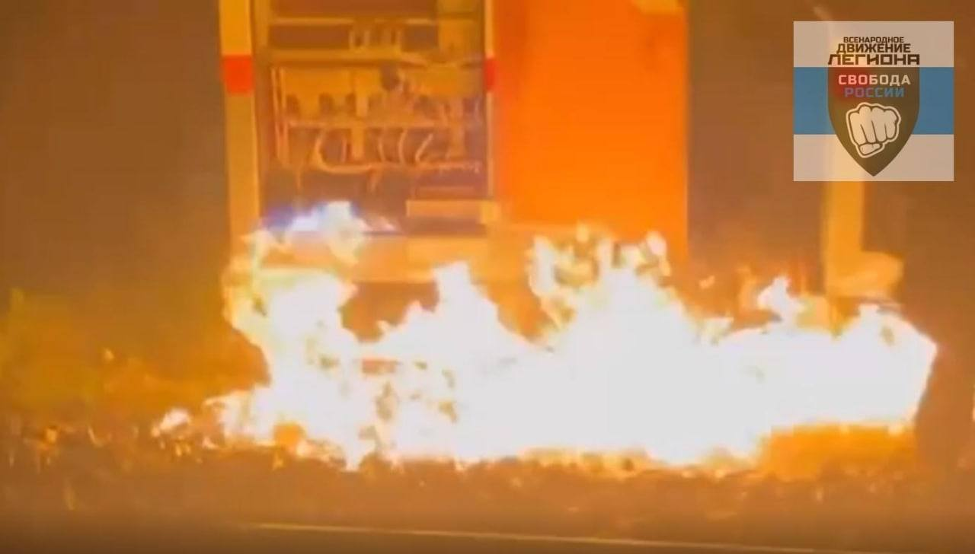 Rail partisans attacked the Krasnodar-Crimea railway line in Russia on Dec. 9. Photo credit: Rospartizan Telegram Channel.
Rail partisans attacked the Krasnodar-Crimea railway line in Russia on Dec. 9. Photo credit: Rospartizan Telegram Channel.
Rail partisans attacked the Krasnodar-Crimea railway line last month. They torched relay boxes and ensured the loss of power supply for some time to a section of track used by Putin's army to carry ammunition for waging its war on Ukraine.
According to Ukraine's military intelligence, Russian authorities are preparing to mobilize some 500,000 more people in January. Moscow is expected to announce the latest mobilization wave on Jan. 15, and the partisan movement is expected to duly step up its activities.

‘There is Certainly Reason to Be Cautiously Optimistic’ - Kremlin Confirmed Putin Met Trump’s Envoy
Development of partisan movement in Russia.
After Russia's full-scale invasion of Ukraine, unknown partisans arranged sabotage on railways in Russia to halt the flow of military equipment going to Ukraine, torched the vehicles of supporters of Putin's terror, and threw Molotov cocktails into the buildings of army enlistment offices to prevent mobilization in Russia.
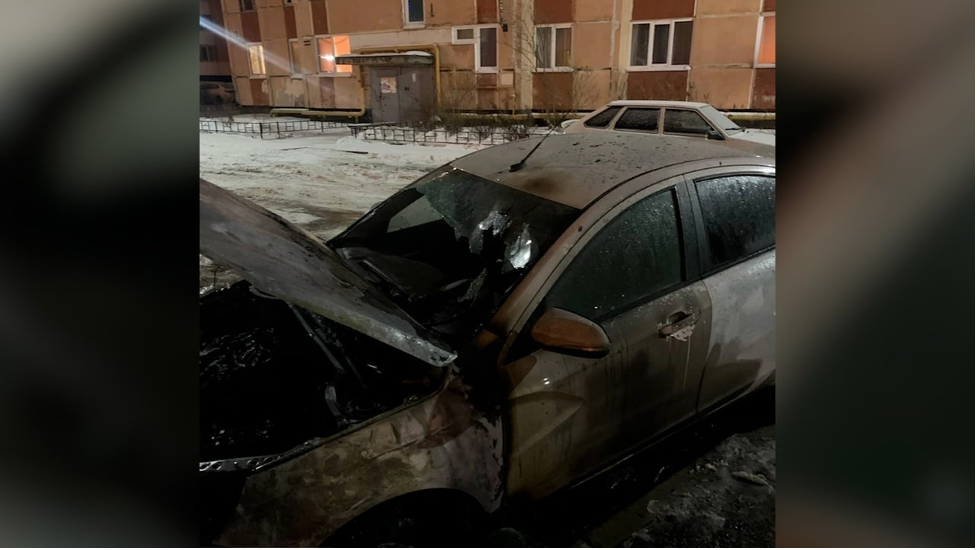 On Dec. 16 a partisan attacked the car of Leningrad Region local deputy Artem Fedorov. A Molotov cocktail was found next to the vehicle. Photo credit: Rospartizan Telegram channel.
On Dec. 16 a partisan attacked the car of Leningrad Region local deputy Artem Fedorov. A Molotov cocktail was found next to the vehicle. Photo credit: Rospartizan Telegram channel.
At the end of February, Russian Telegram channels contained chatter about young men in masks.
Since then, unknown vigilantes have punctured the tires of thousands of cars of Putin's supporters, torched more than two dozen army enlistment offices across the country, and dismantled more than a dozen sections of railway tracks.
Russian partisans act in an organized manner and follow instructions from social networks and Telegram channels.
The Rospartizan Telegram channel has been highlighting the actions of partisans in Russia from the very start of the partisan movement.
It is coordinated from Kyiv by the political center of the armed Russian opposition.
According to the deputy of the political center of the armed Russian opposition, since the start of the war, it is not even the number but the quality and thoroughness of partisan operations that has risen.
Baranovsky cited the murder of a military commander as the most notable example of partisan activity.
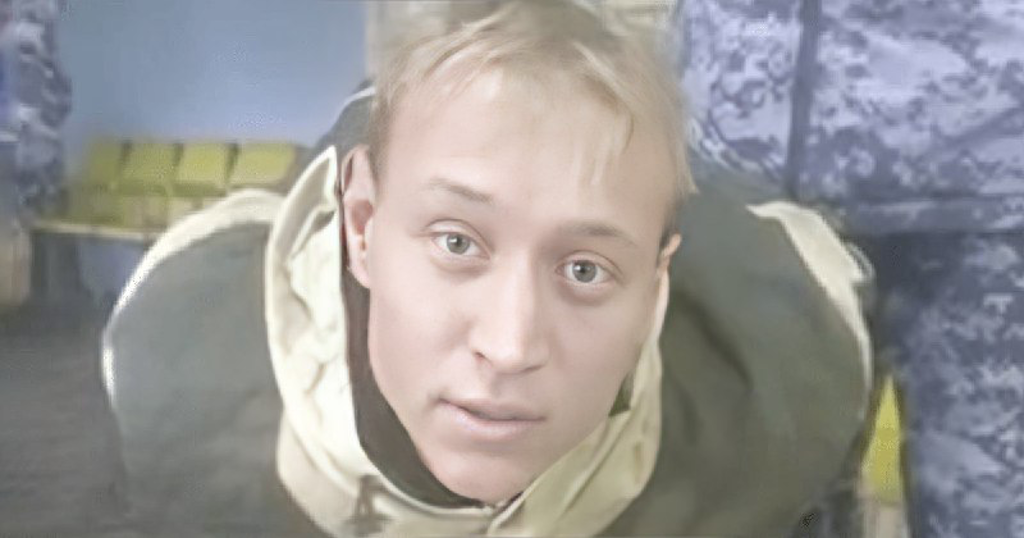 Ruslan Zinin, who was arrested after going to an army enlistment office in Ust-Ilimsk and shot an enlisted man twice with a sawn off shotgun. Photo credit: Rospartizan Telegram channel.
Ruslan Zinin, who was arrested after going to an army enlistment office in Ust-Ilimsk and shot an enlisted man twice with a sawn off shotgun. Photo credit: Rospartizan Telegram channel.
"This is a classic Russian case. In the past, officials and the military have been shot in Russia. It is a classic Russian rebellion that should turn into a revolution," he said
In Russia’s Irkutsk Region a man was shot several times at an army enlistment building in Ust-Ilimsk on Sep. 26. The accused is a mobilized 24 year old by the name of Ruslan Zinin, who decided that it’s better to go to prison than to die in Ukraine. He is in detention.
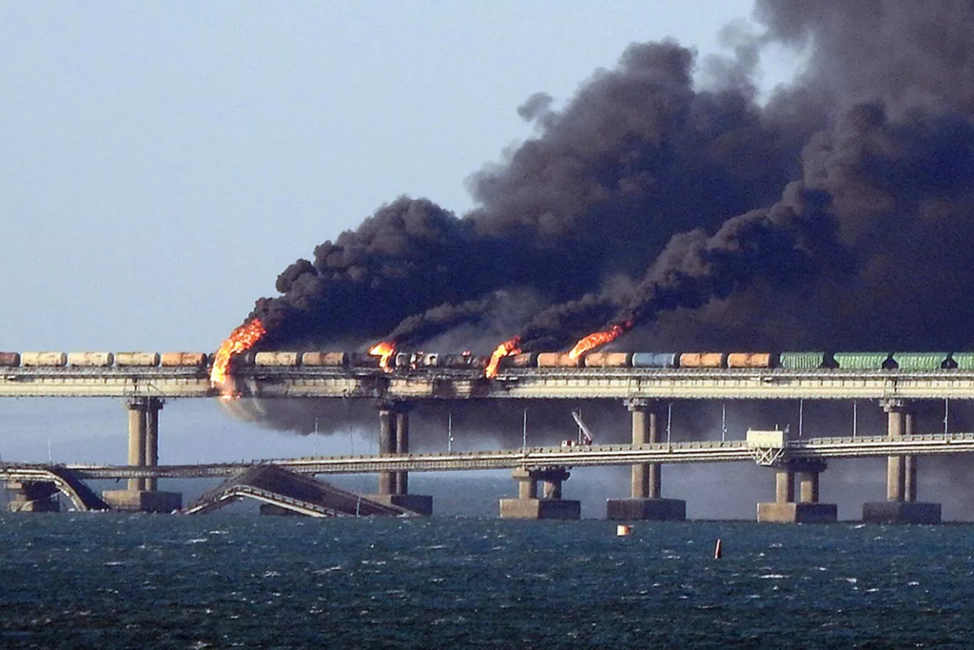 The aftermath of the explosion on the Crimean Bridge on Oct. 8, 2022. Photo credit: Wikipedia.
The aftermath of the explosion on the Crimean Bridge on Oct. 8, 2022. Photo credit: Wikipedia.
Baranovsky noted that the burning down of army enlistment offices has been the main activity of the partisan movement from its very inception.
It is now preparing more complex actions.
In particular, Russian partisans took part in the bombing of the Crimean bridge from Russian territory.
"Not at the forefront, but the Russian partisans were involved in this action," he said.
A fire broke out on the Crimean bridge in the early morning of Oct. 8, 2022, at 6:07 am as a result of an explosion, which occurred on the road bridge, on or under the westbound vehicle lanes running from Russia to Kerch in occupied Crimea. This resulted in two two-lane vehicular spans of the bridge collapsing into the sea.
Who are these Russian partisans?
The deputy head of the political center of the armed Russian opposition says that the main participants in the partisan's actions in Russia are young people in their mid-twenties.
"Historically, freethinking in Russia was prevalent among students. There are also more mature and sensible people who have tried legal means of protest and realized that it does not work. In particular, a teacher from Udmurtia," Baranovsky said.
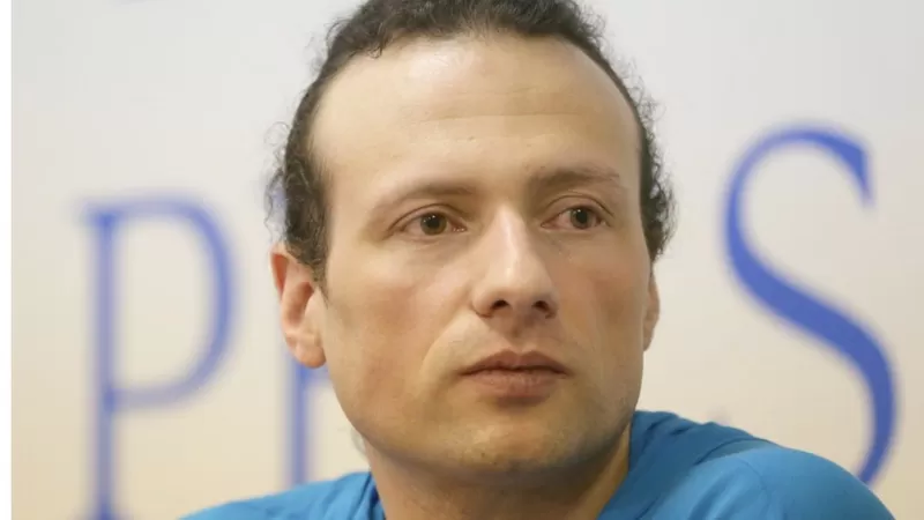 Teacher Ilya Farber from Udmurtia, who was sentenced to three years in a harsh regime colony for setting fire to a military enlistment office. Photo credit: Russian media agency TASS.
Teacher Ilya Farber from Udmurtia, who was sentenced to three years in a harsh regime colony for setting fire to a military enlistment office. Photo credit: Russian media agency TASS.
Since the begging of the full-scale war, Russian police have detained dozens of students and ordinary citizens on suspicion of partisan activity, including, among others, teacher Ilya Farber from Udmurtia.
In November 2022 teacher Ilya Farber was sentenced by a court in Udmurtia former teacher Ilya Farber to three years and two months in a harsh regime colony for setting fire to an army enlistment office. He was convicted of "deliberately destroying by arson" property belonging to several army enlistment offices.
A group of rail partisans were detained on Jan. 9 for setting fire to relay boxes on railway tracks in Krasnoyarsk Krai. The students, aged between 16 and 22, were accused of involvement in several such cases between Dec. 26, 2022 and Jan. 4, 2023.
Three partisans, two aged 17 and a 21-year-old, were detained on Jan. 3 while attempting to set fire to a military recruitment center in Rostov-on-Don.
The sound engineer of Russian local TV Bratsk was detained on suspicion of setting fire to an army enlistment office, which took place on the night of Jan. 9. What is amusing is that the local TV company he worked for supports Putin's war.
Who runs the Russian partisan movement
According to Baranovsky, several networks coordinate the partisan movement in Russia: the Black Bridge, the National Republican Army, the anarcho-communists, Stop the Wagons, and the Legion of Freedom of Russia also has its own network of partisans in Russia.
These networks are not linked and do not coordinate actions with one another, which is convenient even from a security point of view.
The murder of Alexander Dugin's daughter started the coordination of the partisan movement in Kyiv.
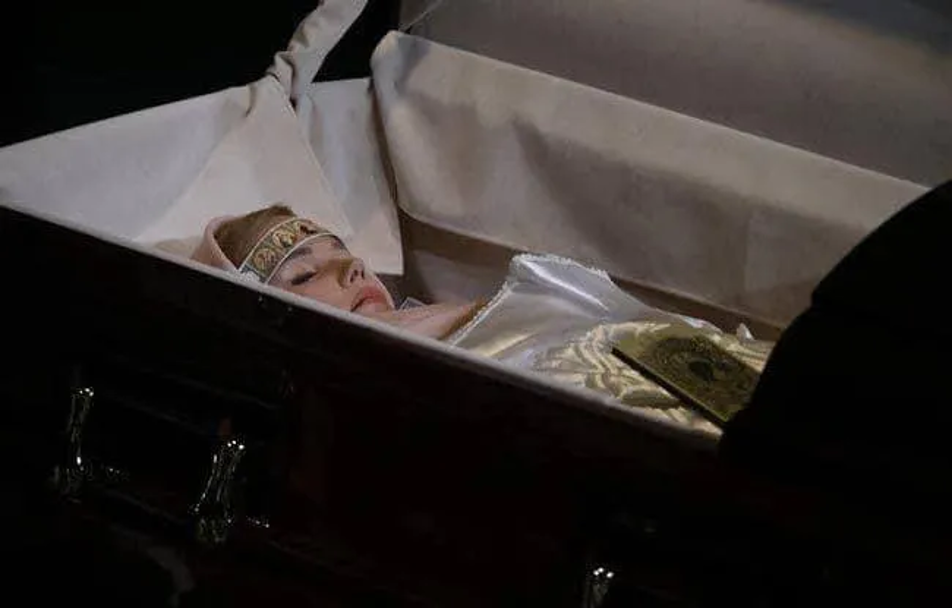 Daria Dugina her coffin on Aug. 23, 2022. Photo credit: Telegram channel Rospartizan.
Daria Dugina her coffin on Aug. 23, 2022. Photo credit: Telegram channel Rospartizan.
The National Republican Army claimed responsibility for the murder of Daria Dugina. It is a partisan network operating underground on Russian territory.
Russian opposition figure and former Duma member Ilya Ponomarev said in comments that Dugina had, just like her father, propagandized the destruction of Ukrainians as a nation and called for violence and murder in Russian-occupied territories.
They also justified the terrorist act in Olenivka, Donetsk Region, when Ukrainian prisoners of war were killed by the Russians.
"This action, like many other partisan's actions carried out in Russia in recent months, was implemented by the National Republican Army (NRA). We have established contact with its fighters through our Rospartizan Telegram channel, which covers Russia's growing wave of resistance," he said.
Ponomarev named the next "legitimate" targets of the Russian partisan movement; those who support the war against Ukraine and are engaged in its incitement, organization, and financing.
NRA fighters have authorized Ponomarev to read their manifesto.
The Russian partisans set up their organization with clear goals capable of conducting actions.
The NRA called on all Russians to join their ranks and raise "the white, blue, and white flag of the new Russia instead of the tricolor disgraced by Putin's power."
"We will provide protection to all who follow our call," it promised. Anyone who carries out their program "up to and including regime change" will be exempt from liability under the usurper's laws.
In addition, the NRA promises "after victory" to immediately release all those illegally convicted by Putin's regime.
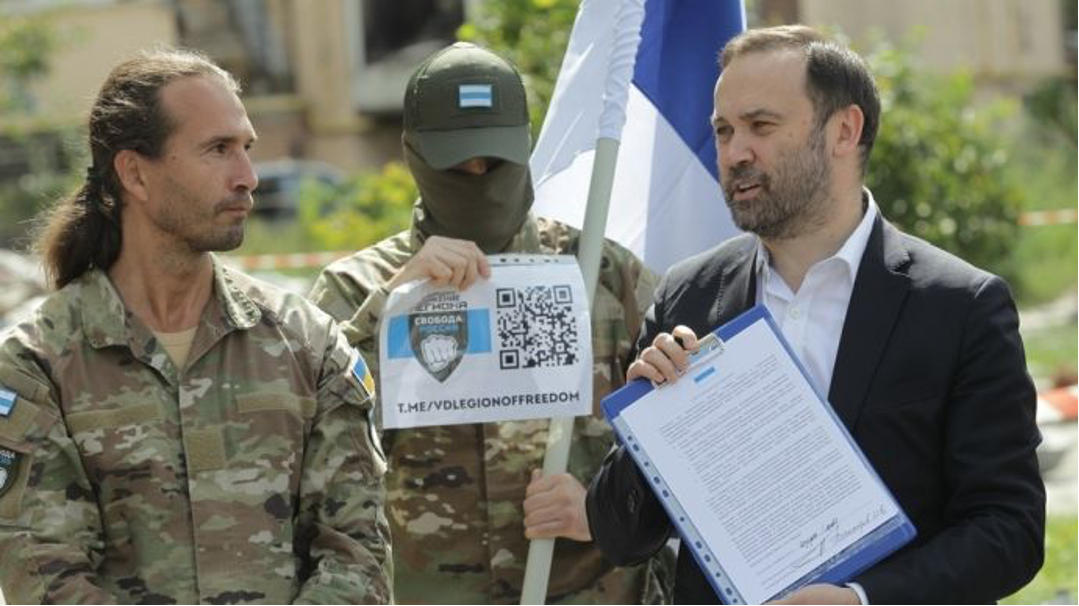 Ilya Ponomarev and fighters of the legion Freedom of Russia on Aug. 31. Photo credit: Telegram channel Utro Fevralya.
Ilya Ponomarev and fighters of the legion Freedom of Russia on Aug. 31. Photo credit: Telegram channel Utro Fevralya.
The NRA and the legion Freedom of Russia signed a declaration on cooperation on Aug. 31, 2022 and a plan to establish a common political center headed by Ilya Ponomarev in Kyiv.
Mobilization impacted partisan movement in Russia
The number of arson attacks on army enlistment officers since Sep. 21, 2022, the date when Putin announced partial mobilization, has risen.
A couple of days after the mobilization announcement, Russian partisans used Molotov cocktails to set fire to six recruitment centers.
At the same time, significant stepping up of activities rail partisans in Russia has been noted since Putin's regime announced partial mobilization.
In 2022, Ukrainian military intelligence noted about 40 railway incidents of destruction of railway transformers and locomotives.
Baranovsky underlined that the partisan movement in Russia would intensify its operations not only because of the new expected wave of mobilization but also because of the worsening economic situation in Russia.
"Partisan actions are deliberate actions and usually have been planned for some time. Of course, the new wave of mobilization will galvanize the partisan movement, though the main factor for the Russians is the worsening economic situation and the reduction in social payments," he said.
According to the deputy head of the political center of the armed Russian opposition, partisan assassinations of prominent political figures Putin’s supporters in Russia are highly likely this year.
You can also highlight the text and press Ctrl + Enter











